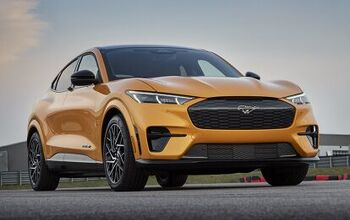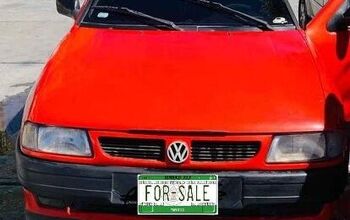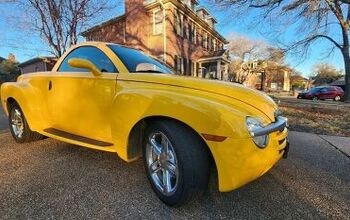UAW Launches Spring Offensive In Transplant War, Attacks Former Chattanooga Munitions Factory

In a surprise attack, the UAW has taken the first formal steps to unionize Volkswagen’s U.S. factory in Chattanooga. In what Reuters calls “an escalation of its effort to establish a foothold outside the Detroit automakers,” the UAW started passing out authorization cards for workers to sign. According to U.S. labor laws, the union needs signatures from at least 30 percent of the workers of a plant before a representation election can go ahead. The UAW’s timing could not have been worse.
The UAW’s attack on Volkswagen, which has its U.S. plant at the former site of a World War II munitions factory, is an undercover operation. Its cover has been blown by Bernie Woodall, a crack automotive reporter of Reuters’ Detroit bureau. Woodall was in Chattanooga yesterday to cover the hiring of 800 new workers at the Volkswagen plant. While on the ground in Chattanooga, he learned about the surreptitious passing around of signature cards. “The UAW has not told the German automaker about its effort to collect signatures,” Woodall was told. The UAW has not even approached all hourly workers.
The matter became semi-public during a closed-door meeting between employees and VW executives at the Chattanooga plant yesterday. During the meeting, workers asked VW executives, including VWoA CEO Jonathan Browning, about the UAW’s efforts. Browning gave milquetoast party line, saying that UAW representation is up to the workers. Then, says Reuters, “one worker, addressing the crowd, said the plant did not need a union, which was met with loud applause and cheers.”
“Not too many people around here want a union,” Woodall was told by a worker who was at the meeting.
Last December, the UAW had given up immediate plans to organize the transplants, and said it would shift its efforts to direct talks with German, Japanese and Korean automakers with U.S. factories. The UAW also hoped it would get support from the German metal workers union IG Metall. These talks must not have been fruitful.
The timing of the organizing efforts is horrendous. It’s not that jobs are imperiled in Chattanooga. In January, the Chattanooga plant hired 200 new workers. Yesterday, Volkswagen announced the creation of 800 new jobs in Chattanooga. There is very little the unions can offer the workers in return for their union fee. At Volkswagen, a new hire is paid $14.50 per hour, even during training. Within three years, pay rises to $19.50 per hour. Says Reuters:
“A General Motors Co spokesman said the average pay for entry-level GM workers is $17.50 an hour. Veteran workers at GM make an average of $29 per hour.”
A Volkswagen worker receives additional shift pay, there are quarterly performance bonuses, a choice of medical plans, and a host of other benefits. Visits to the on-site doctor are free, a gym is open 24/7. A company lease program is so attractive that half of the cars on the employee parking lot are already Volkswagens, coexisting in harmony with Detroit iron.
Nobody knows how successful the UAW is in collecting signatures. From what we are hearing in Chattanooga, people are not falling over themselves to sign. If the stealth attack fails, it could be the end of the UAW. Says Reuters:
“UAW President Bob King has said organizing U.S. plants run by foreign automakers, known in the industry as transplants, is crucial for the union’s survival. After three decades of declining membership, the UAW faces a financial crunch that has been exacerbated by the U.S. economic downturn. This has forced America’s richest union to sell assets and dip into its strike fund to pay for activities.”

Bertel Schmitt comes back to journalism after taking a 35 year break in advertising and marketing. He ran and owned advertising agencies in Duesseldorf, Germany, and New York City. Volkswagen A.G. was Bertel's most important corporate account. Schmitt's advertising and marketing career touched many corners of the industry with a special focus on automotive products and services. Since 2004, he lives in Japan and China with his wife <a href="http://www.tomokoandbertel.com"> Tomoko </a>. Bertel Schmitt is a founding board member of the <a href="http://www.offshoresuperseries.com"> Offshore Super Series </a>, an American offshore powerboat racing organization. He is co-owner of the racing team Typhoon.
More by Bertel Schmitt
Latest Car Reviews
Read moreLatest Product Reviews
Read moreRecent Comments
- Kjhkjlhkjhkljh kljhjkhjklhkjh A prelude is a bad idea. There is already Acura with all the weird sport trims. This will not make back it's R&D money.
- Analoggrotto I don't see a red car here, how blazing stupid are you people?
- Redapple2 Love the wheels
- Redapple2 Good luck to them. They used to make great cars. 510. 240Z, Sentra SE-R. Maxima. Frontier.
- Joe65688619 Under Ghosn they went through the same short-term bottom-line thinking that GM did in the 80s/90s, and they have not recovered say, to their heyday in the 50s and 60s in terms of market share and innovation. Poor design decisions (a CVT in their front-wheel drive "4-Door Sports Car", model overlap in a poorly performing segment (they never needed the Altima AND the Maxima...what they needed was one vehicle with different drivetrain, including hybrid, to compete with the Accord/Camry, and decontenting their vehicles: My 2012 QX56 (I know, not a Nissan, but the same holds for the Armada) had power rear windows in the cargo area that could vent, a glass hatch on the back door that could be opened separate from the whole liftgate (in such a tall vehicle, kinda essential if you have it in a garage and want to load the trunk without having to open the garage door to make room for the lift gate), a nice driver's side folding armrest, and a few other quality-of-life details absent from my 2018 QX80. In a competitive market this attention to detai is can be the differentiator that sell cars. Now they are caught in the middle of the market, competing more with Hyundai and Kia and selling discounted vehicles near the same price points, but losing money on them. They invested also invested a lot in niche platforms. The Leaf was one of the first full EVs, but never really evolved. They misjudged the market - luxury EVs are selling, small budget models not so much. Variable compression engines offering little in terms of real-world power or tech, let a lot of complexity that is leading to higher failure rates. Aside from the Z and GT-R (low volume models), not much forced induction (whether your a fan or not, look at what Honda did with the CR-V and Acura RDX - same chassis, slap a turbo on it, make it nicer inside, and now you can sell it as a semi-premium brand with higher markup). That said, I do believe they retain the technical and engineering capability to do far better. About time management realized they need to make smarter investments and understand their markets better.


































Comments
Join the conversation
What's weakened the unions is the crossing over of former union labor lawyers to the corporations. Their bank accounts mature as free-lance legal consultants or union busters. Dirty game - learn the trade on member dues then cross to the bosses pocket.
@AJ Really?... Did you expect a fashion show. Do you have any concept of what its like to work at 95 degrees? In the office where you can't wear open toe shoes,are all the people in great shape?